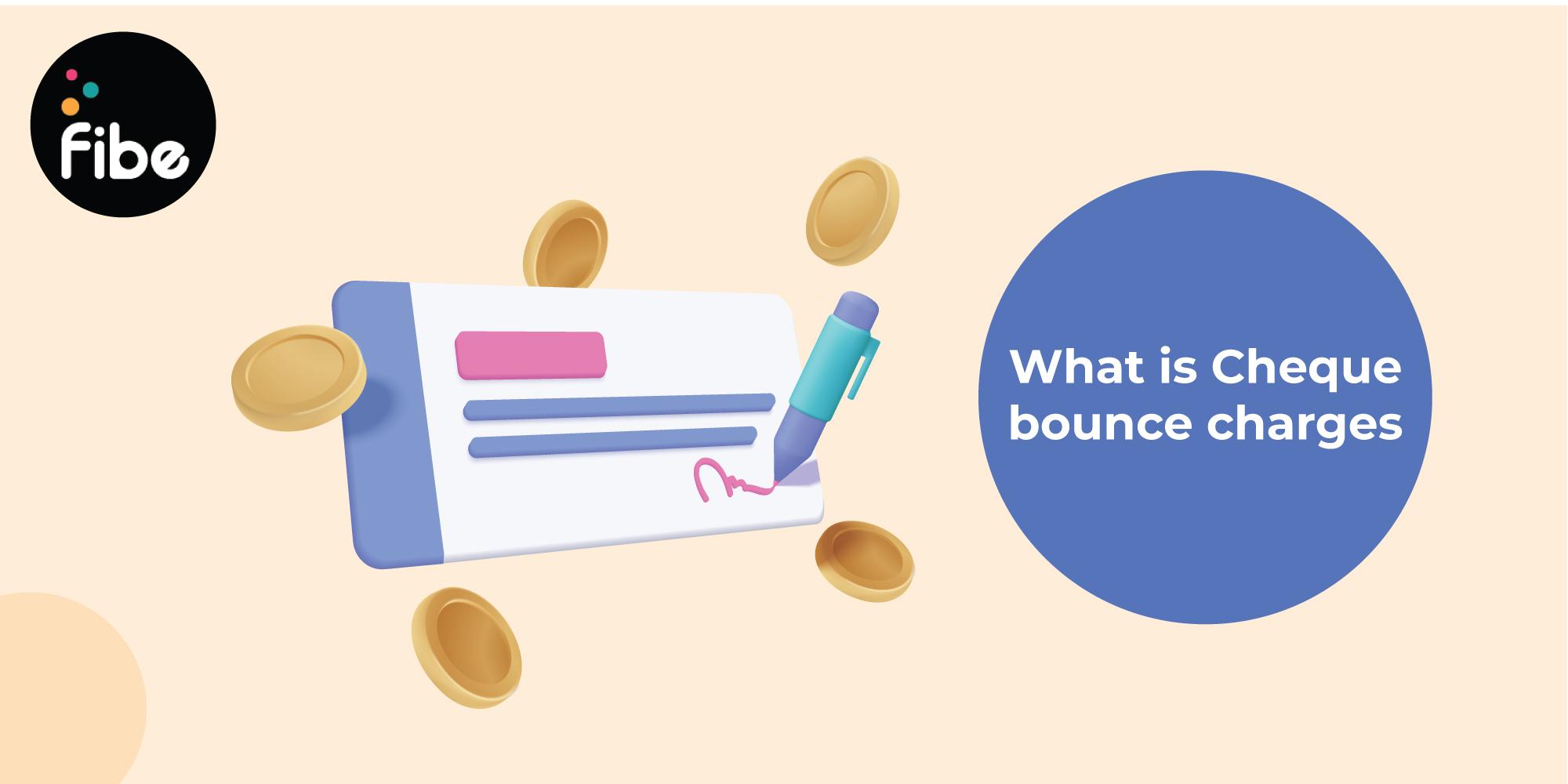
Cheque bounce charges are a penalty that you must pay when the cheque fails to provide the promised amount. Writing a cheque is an agreement to pay the mentioned sum bound by the law. So, when you cannot honour it, these charges are a result.
This may happen when your cheque payment is not cleared due to insufficient funds. This is called a ‘dishonoured’ or ‘bounced’ cheque. This is a punishable offence by law that can lead to a fine or imprisonment, depending on the circumstances.
Read on to know about cheque bounce charges, penalties, common reasons to avoid them and more.
Dishonouring a cheque is a punishable offence under Section 138 of the Negotiable Instruments Act of 1881. According to this, you may have to face one of the following penalties:
Hence, you must maintain the required balance before issuing the cheque.
Knowing when and why your cheque may bounce helps you avoid such circumstances. Here are some reasons to keep in mind.
Also Read: What Is a Post-Dated Cheque?
In August 2021, the Reserve Bank of India announced a new rule related to bounce cheques. Here are its key pointers:
This allows you to clear the cheque faster.
Also Read: Fact about Cheque Leaf
Here is an overview of the cheque bounce penalty that applies to both parties of transactions of a few leading banks in India:
| Bank | Outward | Inward | Technical Reason |
|---|---|---|---|
| State Bank of India | Up to ₹1 lakh: ₹150 + GST Above ₹1 lakh: ₹250 + GST | For SME customers:₹500 for first 3 cheques₹1,000 for 4th cheques For other customers:₹500 + GST | ₹150 + GST |
| ICICI Bank | ₹200 for financial reasons | ₹500 for financial reasons and ₹50 for non-financial reasons except for signature verification | ₹200 for NACH Returns |
| HDFC Bank | 1st cheque: ₹4502nd cheque: ₹5003rd cheque onwards: ₹550 | ₹350 per instance | ₹50 for mismatched signs, post-dated, etc. and ₹500 for NACH Returns |
| Kotak Mahindra Bank | Up ₹350 for first return of the month and ₹750 on the second return and onwards | Up ₹1,000 | ₹50 |
| Punjab National Bank | ₹150 for up to ₹1 lakh₹250 from ₹1 lakh to ₹10 lakhs₹150 for over ₹10 lakhs | ₹200 for up to ₹1 lakh₹500 from ₹1 lakh to ₹1 crores₹2,000 for over ₹1 crores | No charge |
| Axis Bank | ₹500 per instance | ₹50 for the 1st return₹100 from the 2nd return onward | No charge |
Note that all these bank cheque bounce charges exclude GST and other applicable taxes. Also, these fees may vary at the discretion of the bank.
Now that you know how high the bank cheque bounce penalty can go, avoid such instances for better financial health. One way to manage such situations is to get an Instant Personal Loan if you have an insufficient balance.
With Fibe Instant Cash Loan, enjoy up to ₹5 lakhs financing for your umpteen requirements at attractive interest rates, minimum paperwork and quick disbursal. Moreover, we have easy-to-meet eligibility criteria that make the borrowing process easy. To apply, create an account on our website or download our Personal Loan App!
These charges vary from one bank to another. Moreover, it depends on whether it’s an inward or outward deposit.
The RBI issued the latest cheque bounce notice in August of 2021, which states the following:
Here are some tips to avoid these charges:
Yes. It is possible to file an FIR against the issuer under Section 420 or 406 of the Indian Penal Code (IPC).
There is no limit, but most banks warn you 3 times before filing a complaint. Nevertheless, it’s best to add funds to your account to avoid cheque bounce or any legal trouble.
The charges depend on the bank, ranging up to ₹750.
If you don’t pay the cheque return charges within 15 days, your bank can take legal action against you.
No, it doesn’t affect your credit score directly. However, if the cheque is for paying an EMI, the delayed payment can impact your score.